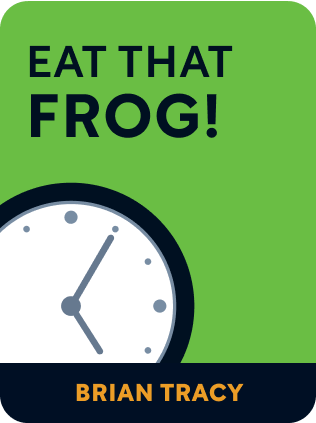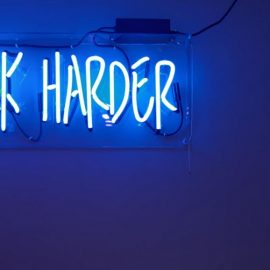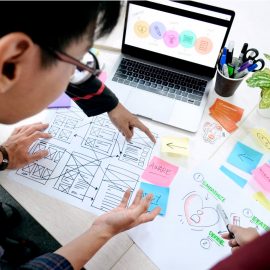

This article is an excerpt from the Shortform book guide to "Eat That Frog!" by Brian Tracy. Shortform has the world's best summaries and analyses of books you should be reading.
Like this article? Sign up for a free trial here .
What is the Pareto Principle? How can focusing on the “vital few” instead of the “trivial many” help you increase productivity?
The Pareto Principle, or the 80/20 rule, states that as little as 20% of your tasks and effort will account for 80% of your results. Before you start a task, ask whether it’s a top 20% task or bottom 80% task; only do it if it’s high-value.
Keep reading for advice on how to implement the Pareto Principle in your own life.
Prioritize and Live by the Pareto Principle
Eat That Frog by Brian Tracy says that you should complete the most important task—or eat the biggest frog—first. But the biggest task is the one most people put off. They focus on the least important items, which have little impact, in contrast to the most valuable one. Thus, many people are busy while accomplishing little.
The 80/20 rule, or the Pareto Principle, was developed by Italian economist Vilfredo Pareto and is the key to prioritizing.
Pareto noticed in 1895 that 20% of his country’s population accounted for 80% of its wealth. He interpreted this to mean that input doesn’t correspond directly with output. For example, the Pareto Principle states that as little as 20% of your tasks and effort will account for 80% of your results because some things are more important or contribute more to outcomes than others. It’s the difference between the “vital few” and the “trivial many.” In economic terms:
- 80% or your sales will be generated by 20% of your customers
- 80% of your profits will come from 20% of your products
- 80% of your grocery bill comes from 20% of the items
According to the Pareto Principle, if you have 10 things to do, doing the two most important ones will have a greater impact than doing the other eight combined. Each of the 10 tasks may take the same amount of time, but a certain one will generate more value—perhaps as much as 10 times more—than all the others.
Focus on Value, not Quantity
Resist the temptation to get the easy or small things out of the way first to shrink your list. What you choose to do repeatedly becomes a habit that is difficult to break. If you always do unimportant things first, that becomes your habit. Of course, low-value tasks multiply like rabbits and you never get caught up so you can get to the important things.
Instead, before you start a task, ask whether it’s a top 20% task or bottom 80% task; only do it if it’s high-value. The 80/20 rules says you should refuse to work on the low-value 80% of your tasks until you’ve completed the valuable or top-20% tasks on your list.
Take Control
The hardest part of tackling big things is getting started, but once you start, you’ll be motivated to continue by the excitement of working on something that makes a difference. Keep building on this energy and stimulating your mind by following the Pareto Principle and doing the important things. The feeling of satisfaction you get from completing a big, important job will motivate you to do more.
When you develop the ability to prioritize your time this way, you’re really managing yourself and your life. By taking control over what you do next—choosing the important over the unimportant—you’re managing the sequence of events in your life and setting yourself up for success.

———End of Preview———
Like what you just read? Read the rest of the world's best book summary and analysis of Brian Tracy's "Eat That Frog!" at Shortform .
Here's what you'll find in our full Eat That Frog! summary :
- What it means to eat a frog
- How your daily distractions get in the way of doing important work first
- How to make a habit of doing the most important thing first, every day






